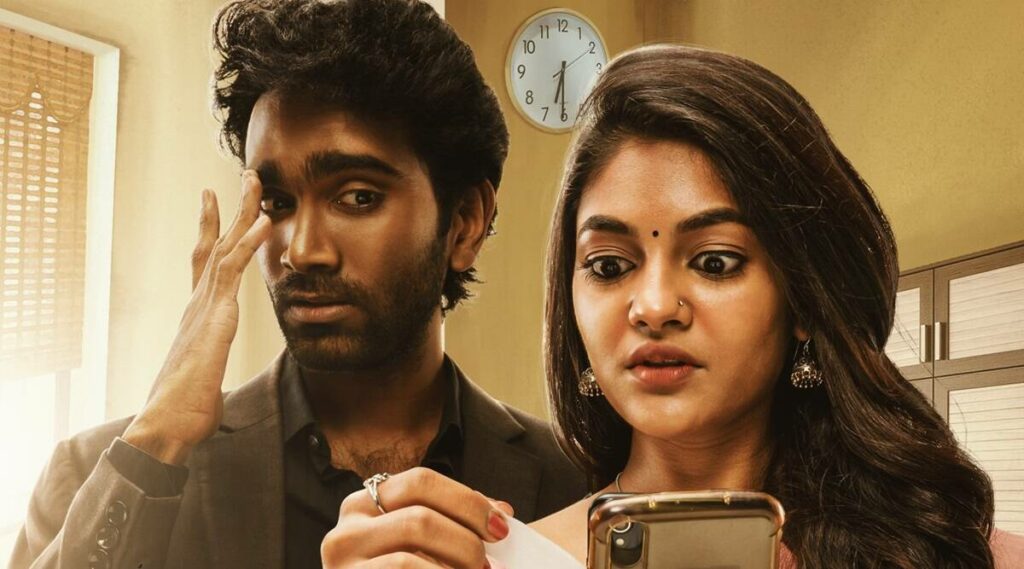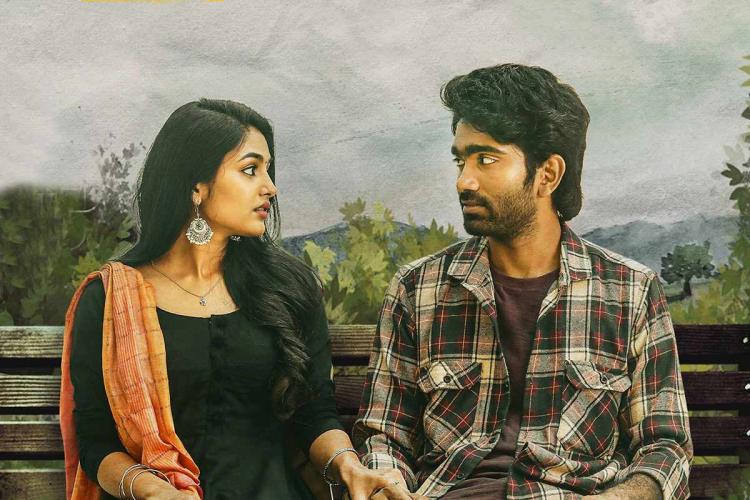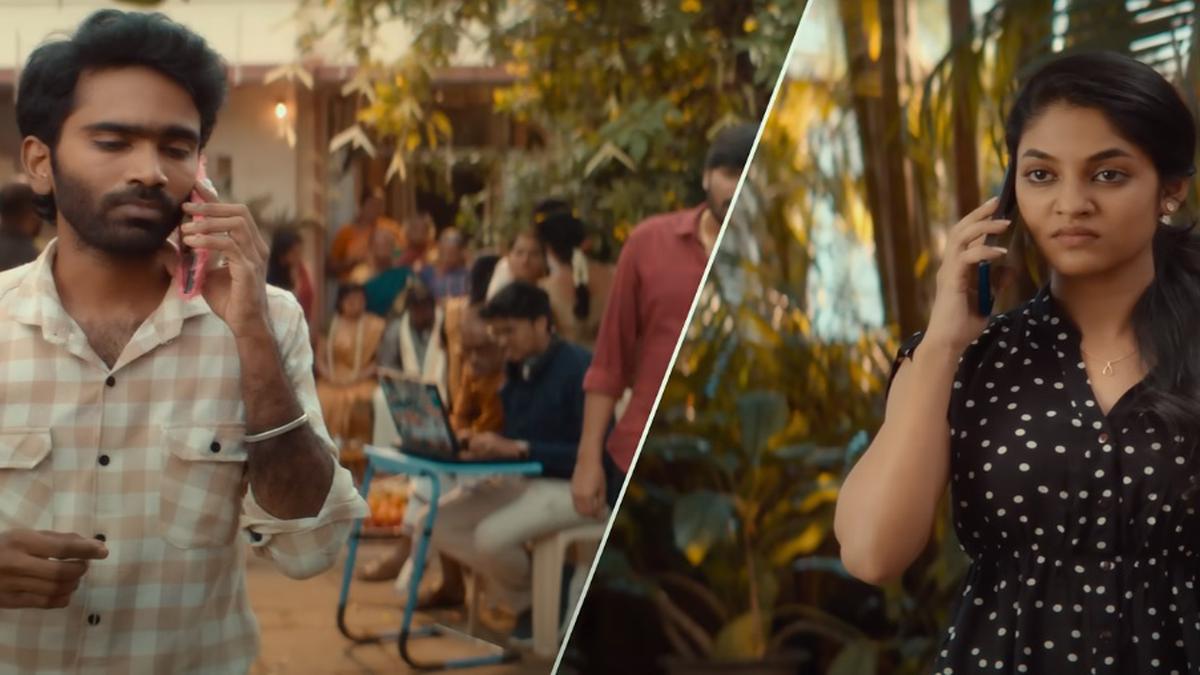Much has been said, written and critiqued about one of the most successful commercial Tamil films of recent times, Love Today. The movie, while celebrated by legions of movie-goers in South Indian circles, garnered criticism for reinforcing misogynistic and outdated ideologies on women, relationships and sex. It is not easy to critique an “entertainer” such as Love today, because feminists are ultimately told that these movies are just for laughs.
Commercial Indian movies, despite being consumed by a vast demographic, continue to ride on terribly problematic stereotypes and they serve to reinforce certain cultural norms in India. Few commercial movies have managed to stand out for their handling of gender and other social issues. And clearly, Love Today is not one of them. Rather than re-stating the extremely valid criticism from feminist circles, I’m interested in reflecting on whether technology has really transformed dating, sex and relationships in modern India.
If the female lead has any sexual desires, the movie does not want the viewers to be aware of them. Rather, the only acceptable female response to sex is disgust. When she discovers the amount of porn on his mobile, she is disgusted. And he makes a joke out of it. When the couple have a fight over her going on a drive with her ex, he asks her if it will be her first time in bed or if she has done it before. He goes on to add that it’s okay if she has, but he doesn’t want her to lie about it.
A huge part of Love Today’s appeal is that it sells itself as a new-gen movie- it incorporates several things that the younger generations are accustomed to, such as Instagram DMs, meme language and ‘hip’ words such as Boomer. Despite its youthfulness, it relies heavily on, and ultimately reinforces cultural norms that are sexist and misogynistic. For instance, discussing a girl’s virginity and ridiculing it are accepted.

It was troubling to observe how sex is treated and talked about in the movie. The movie centres on the young couple’s disturbingly toxic, supposedly ‘romantic’ relationship. Sex is never explicitly mentioned, and presumably their relationship is romantic rather than sexual. But the sexual needs of the male and female lead are clearly demarcated.
If the female lead has any sexual desires, the movie does not want the viewers to be aware of them. Rather, the only acceptable female response to sex is disgust. When she discovers the amount of porn on his mobile, she is disgusted. And he makes a joke out of it. When the couple have a fight over her going on a drive with her ex, he asks her if it will be her first time in bed or if she has done it before. He goes on to add that it’s okay if she has, but he doesn’t want her to lie about it.
Also read: Natchathiram Nagargiradhu: A Brilliant Cinematic Portrayal Of How Love Is Deeply Political
In discussing new-age relationships, the movie wasted what was an excellent opportunity to convey to the masses that virginity is not a virtue. The deeply ingrained idea in a vast number of Indian households, that the honour of the family depends on the women remaining virgins and therefore ‘pure’ is one of the most disgustingly misogynistic ideas.

In another scene, the male lead and his friends are seen discussing explicit photos that they share amongst themselves in a private Whatsapp group. Needless to say, this behaviour is problematic. This scene combined with other scenes, goes on to validate male sexual fantasies while demonising or turning a blind eye to women’s sexual desires.
Women’s sex lives in India are a socio-political issue, governed by societal norms, by fear and shame. Emancipation of women requires women to attain bodily autonomy, and to have full sexual agency, to take control of their sexuality. A woman’s sex life is her business alone and no one else has the right to comment on it.
The movie also fails to incorporate sex positivity while showing new generational values around love and relationships. Sex positivity is simply the idea that engaging in consensual sex is not something to be ashamed of, that talking about sex is healthy and shrouding it in a heap of porn, taboo and shame will only further exacerbate issues surrounding sex.
We don’t want yet another generation that does not understand boundaries, that fakes orgasms and that punishes women for their sexual desires, or even refuses to acknowledge that they could have any of their own. The narrative that sex is something that men take and women give, needs to be quashed because it is used to validate men’s sexual needs even under wrong circumstances. It also sees women as subservient and not equals in their participation in sexual activities.

Women’s sex lives in India are a socio-political issue, governed by societal norms, by fear and shame. Emancipation of women requires women to attain bodily autonomy, and to have full sexual agency, to take control of their sexuality. A woman’s sex life is her business alone and no one else has the right to comment on it. Not even her closest friends, parents and family happen to ‘own’ her, and so cannot ever dictate who she should or should not engage in sex with.
Also read: Paradoxes Of Working Women In Tamil Cinema
The way sex was spoken about in the Love Today, showed how cultural norms still dictate the lives of youngsters. It is generally acknowledged that technology transformed dating, sex and relationships, and they are not what they used to be some twenty years ago. The movie, however, reflected the stronghold that cultural norms still seem to have. For instance, in Tamil culture and in regular Tamil households, the topic of sex is something that makes adults, especially parents feel queasy.
In recent years, sex positivity received a huge boost from influencers and sex therapists on social media, however, the movie made a clear point that not everyone in the younger generation believes in sex positivity, and not everyone understands how gender inequality plays out in sex.
In recent years, sex positivity received a huge boost from influencers and sex therapists on social media, however, the movie made a clear point that not everyone in the younger generation believes in sex positivity, and not everyone understands how gender inequality plays out in sex. In fact, ideas like ‘saving yourself’ are still prevalent. Pradeep Ranganathan might be the brains behind this movie, but he speaks for a sizable demographic whose beliefs are reflected in the movie.

Sex, based on mainstream cultural ideas, that has been vetted and approved by relatives and passed down by ancestors, can only be seen in two ways. It is either generally a bad thing, something that you should be ashamed of and disgusted by or only used for insulting people by accusing them of sleeping with someone. Else, it is a sacred thing. It is something that should follow naturally after love, accompanied of course by marriage. That is the only circumstance that it can be allowed under, with the least amount of guilt and shame.
Also read: Pariyerum Perumal Is A Fervent Portrayal Of Our Caste-Ridden Society
Both these ideas- that sex is a bad thing or that it is sacred are deeply problematic. The success of Love Today reflects how cultural norms in India are trumping over modernity brought forth by a technological boom. For all the new lingo, new media platforms and globalisation that young India is going through, some of them still unquestioningly imbibe toxic norms passed down by older generations on sex and relationships. And so, their ‘youthfulness’, much like the movie’s, is only performative and superficial.





Ok, he asked her about her virginity, so what wrong in it? I mean, he’s not making fun of her or anything, he just wants to confirm whether she is virgin or not. I agree that a woman can have her sex life, but it is wrong to have it behind her boyfriend/husband. It is immoral.
Just my opinion
During sex women just want men to do everything without taking any initiative. Why is it a man’s job to kiss his wife from head to toe, why don’t women kiss their husband’s in the same manner? Why must a man always have sex with his wife in the missionary position, why don’t women ride their husbands? Why must a man perform oral sex without getting oral sex in return?
Teja, a man has no right to seek a virgin wife if he is not a virgin himself. At the same time, a shy wife can really frustrate her husband in bed. It is a woman’s duty to become nude in front of her husband and be willing to try different sex positions. So many women frustrate their husbands in bed.
It is a woman’s marital duty and religious obligation to become fully naked and have sex. It is a man’s duty to use a condom.